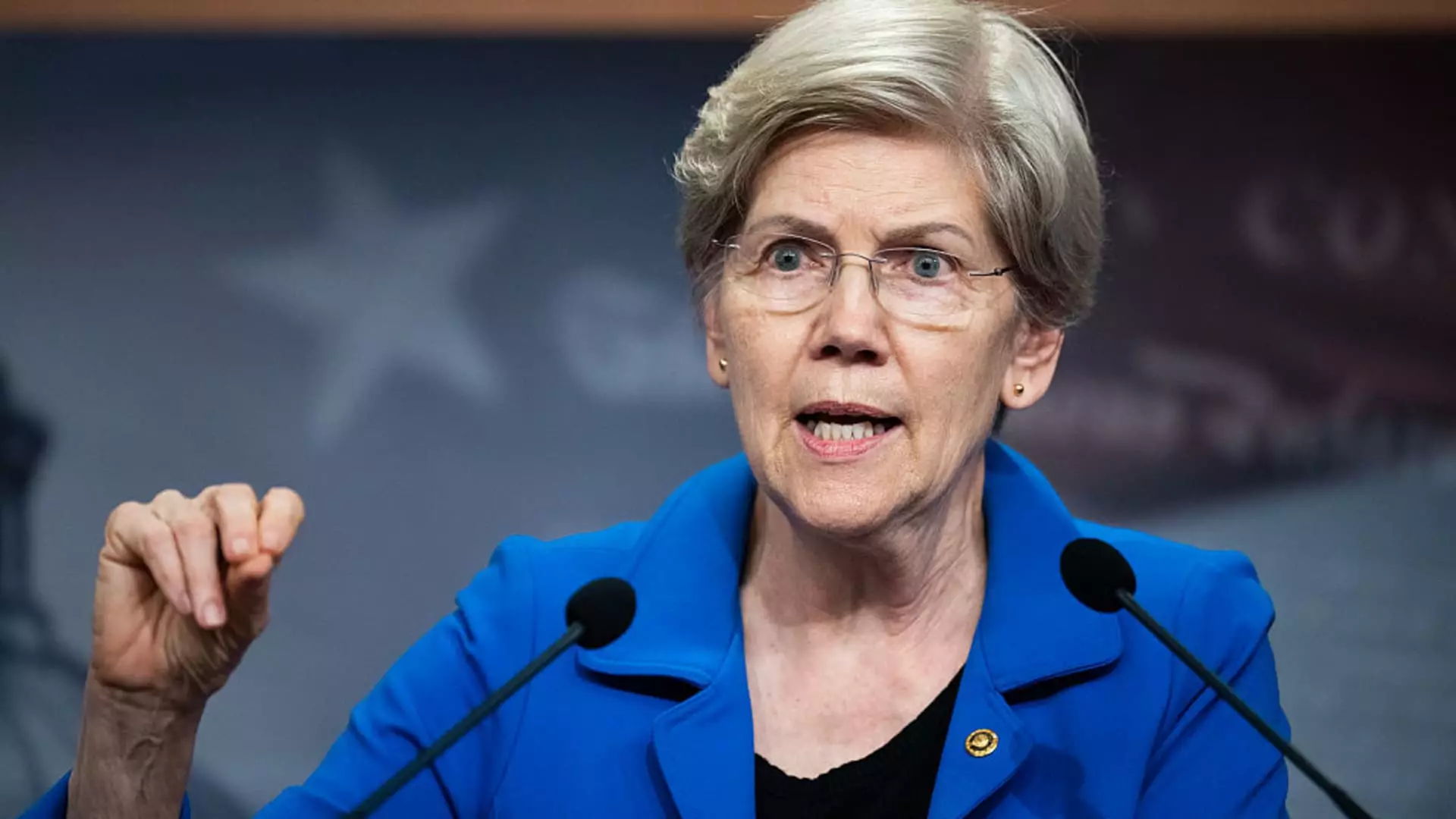In an alarming cry from the political sidelines, a group of Democrats, spearheaded by prominent figures like Senator Elizabeth Warren and Representatives Judy Chu and Linda Sánchez, has issued a stark warning about President Donald Trump’s trade policies. Their letter, penned with urgency and concern, paints a picture of a tariff agenda that is not merely a component of economic strategy, but a potential breeding ground for corrupt practices. This assertion, made by 47 members of Congress, indicates a deep-seated fear that trade policies could be manipulated for personal gain, transforming what should be a straightforward economic tool into a mechanism for cronyism.
The letters’ signatories suggest that Trump’s approach to tariffs is less about protecting American interests and more about rewarding allies and punishing adversaries. This interpretation should send shivers down the spine of anyone concerned with the integrity of government. When economic decisions begin to skew towards personal connections rather than sound policy, the fundamental principles of democracy are put at risk. Indeed, it becomes easy to see how tariffs, meant to foster fair trade, could morph into a clandestine operation designed to enrich a privileged few.
The Favors Exchange
The Democrats’ concerns are not unfounded. The allegation that the administration might be leveraging tariff exemptions as a bargaining chip—granting favors to those who maintain beneficial ties with the President—paints a troubling picture of a system where profit is prioritized over principle. The exemption of smartphones from the latest tariff impositions, coinciding with a notable spike in the stock prices of companies like Apple, raises eyebrows. This turn of events serves as a glaring illustration of how the interplay between politicians and business can blur ethical lines, especially when personal relationships with the President may influence mercantile advantages.
By systematically calling out these conflicts of interest, the Democratic lawmakers are spotlighting a dangerous vulnerability within the Trump administration. The potential for corrupt exchanges is magnified by the ambiguity surrounding tariff policies—changes made on a whim can lead to frenetic movements in the market that predominantly benefit those already at the table. Such a model is indefensible, and warrants scrutiny and accountability to safeguard the economic landscape from being weaponized.
Trade Policy and Insider Trading Risks
Moreover, the implications go beyond mere favoritism; they raise questions of integrity regarding insider trading. When trade policies shift as rapidly as political alliances, the possibility of officials profiting from privileged knowledge becomes alarmingly plausible. The concern that policymakers might exploit their positions for financial gain cannot be disregarded, especially in an administration that has already demonstrated a propensity for conflating personal and professional interests.
As Democrats push for clarity regarding how the Trump administration plans to delimit misuse of tariffs, their efforts underscore a growing urgency for transparency in governance. Their call to the authorities handling trade policy is a necessary intervention, aiming to establish a clearer boundary between public service and private gain.
The need for accountability in trade practices has never been more vital. Tariffs, when wielded indiscriminately, can become tools for achieving ends that are anything but democratic. It is imperative for Congress to advocate for established guidelines that ensure ethical policy-making in an era where economic power can tip the scales of fairness. Ignoring these issues not only threatens the livelihoods of ordinary Americans but also undermines the very fabric of democratic governance itself.


Leave a Reply